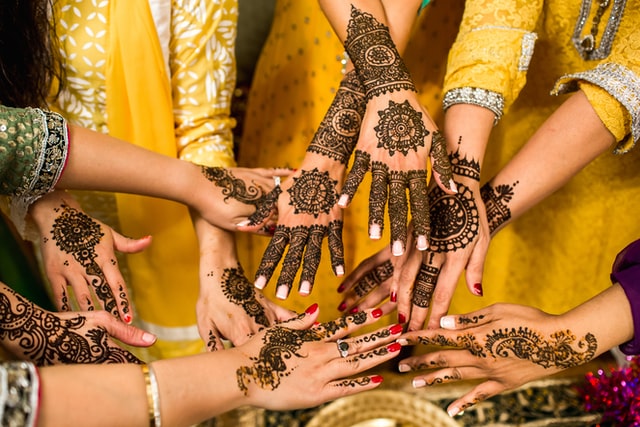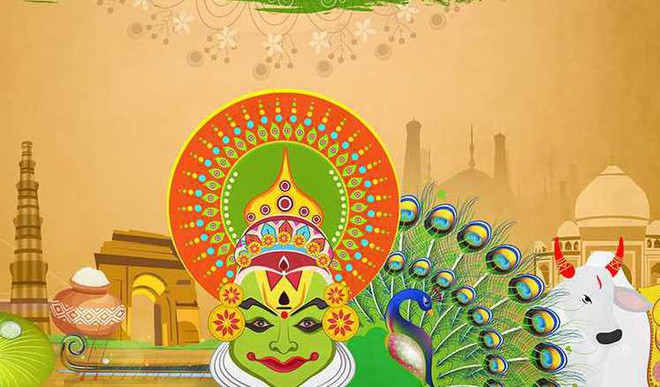Fundamentals of Indian culture
The strength of this culture lies in its devotion
The culture of ancient and modern India has evolved from various historical times, traditions and heritage of the local population, immigrants, as well as conquerors.
Today, Indian culture goes far beyond the borders of the country, and its religions and philosophies do not cease to gain popularity in parts of the world far from India.
Cultural and religious diversity is so great that almost every Indian state has managed to build its own cultural niche. Despite this unique set of cultures, India retains its national identity as a single civilization.
The religious movements that originated in India are Hinduism, Jainism, Buddhism and Sikhism, became known precisely as Indian religions and still have a great impact on the whole world.

Religion and Politics in India
There is no state religion in India. The constitution of India, as a secular state, recognizes any religion, as well as the separation of religion and politics. Infringement of rights on the basis of faith is prohibited by law.
In practice, in the political life of India there is a religious factor that influences the decisions of political parties (mostly representatives of Hinduism and Islam).
Another manifestation is local conflicts between people of different faiths, Islamic and Hindu terrorism. The state tries to combine the dominant position of one of the religions – Hinduism, with the involvement of other religious denominations in politics.
The present
India is one of the most religious countries in the entire world. According to the census, only 0.07% do not identify themselves with any faith or consider themselves atheists.
Modern India is a multilingual, multi-religious country with genuine respect for any religion. Although, as in the rest of the world, there are conflicts on religious grounds, suffice it to recall the terrorist attacks in Mumbai at the Taj Mahal and Oberoi hotels.
Marriages between representatives of different faiths are also rare.
Modern religions
Hinduism is an ancient religion that originated in India. It is in third place in terms of the number of believers (more than 1 billion people). Distinguished by the absence of a unified system of beliefs.
Has no founder
- Islam (Arabic الإسلام – “submission”) is a young and rapidly spreading (sometimes “by fire and sword”) world religion. It is in second place in terms of the number of believers. Appeared in the 7th century in the west of the
- Arabian Peninsula. In India, this religion first appeared with the Arabs, then the Turks, and later the Mongols;
Christianity – originated in Palestine, about 33 g, and today is the largest in terms of the number of believers. There are about 24 million in India, which is only 2.3% of the country’s total population; - Sikhism is a religion that originated in the Punjab in the second half of the 15th century, in the North-West of India. The founder and spiritual teacher is Nanak. The followers of Sikhism currently number about 25 million;
- Buddhism is a religion, but rather a philosophical doctrine with a huge number of followers around the world. Formed in the 1st millennium BC. in ancient India;
- Jainism is also a religion founded in ancient India by Jin Mahavira. There are about 5-6 million Jains in Indiaand other countries.
Most importantly, in India, all religions are favorably viewed, and inter-religious disputes in practice appear extremely rarely. Hindus try not to impose their beliefs or principles.
Hinduism in India
The most widespread religion in India is Hinduism. The definition of religion was given by the British colonialists, taking the Indus River as a basis.
The followers of the Indian religion themselves call it “sanatana jarma” or “eternal order.” It is unlikely that today there is a more diverse, filled with history, tales and legends faith.
Literature associated with the pantheon of Hindu deities, such texts as the Bhagavad Gita or the Upanishads, is now a cultural world heritage.
The concept of Hinduism
Hinduism is an ancient Dharmic religion based not on one book or the beliefs of one prophet, as in Christianity or Islam, but on many sacred books of equal importance.
The main doctrines on which the teaching is based are the following:
- about the soul;
- about life after death;
- about supernatural beings;
- about sacred books.
There can be no heresy in Hinduism that is at odds with orthodox teaching, because it is, first of all, the unification into a common culture of continuously growing different trends, schools that have some similar basic characteristics. There is no information about its founder.
Everyone can get rid of earthly suffering – the wheel of samsara, having come to the final liberation (moksha), by his preferred way – by deeds (karma-marga), by knowledge (jnana-marga), by service (bhakti-marga).
Major Gods in Hinduism

The galaxy of Hindu gods and goddesses in India is very extensive. The universal god name, prayer and symbol is “Om” or “Aum”. This symbol embodies the triad of the main deities of the ancient religion of India: Brahma the Creator, Vishnu the Guardian and Shiva the Destroyer.
There are 10 main avatars of Vishnu, and there are about 30 in total. Matsya, Kurma, Varaha, Narasimha, Vamana, Parashurama (“Rama with an ax”), Rama (Rama avatars are also independent objects of many religious cults and even have their own mythology), Krishna and Balarama, Buddha, Kalki.
In addition, there is a group of common Indian gods: Ayyappa, Ganesha, Durga, Kali, Kama, Lakshmi, Parvati, Saraswati, Skanda, Hanuman.
And also, lokopals are gods protecting the cardinal points and the whole world. At first, there were four of them, according to the number of cardinal points, later expanded to 8:
- Indra – east, the deity of rain;
- Surya – southeast, the deity of the sun;
- Yama – the south, the deity of death and justice;
- Agni – southwest, the deity of fire; Varuna – the west, the deity of the waters;
- Vayu – northwest, deity of air, wind;
- Kubera – north, deity of wealth;
- Soma is the northeast, the deity of the moon.
